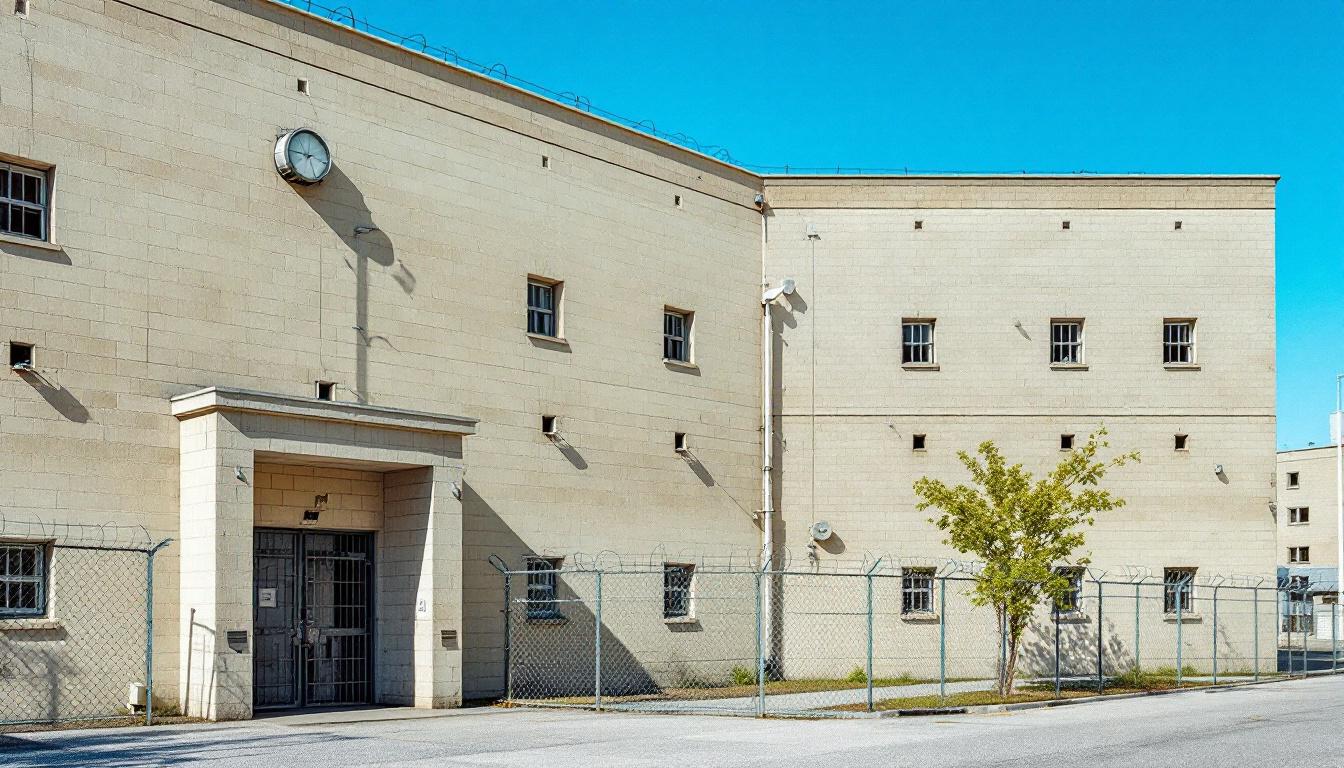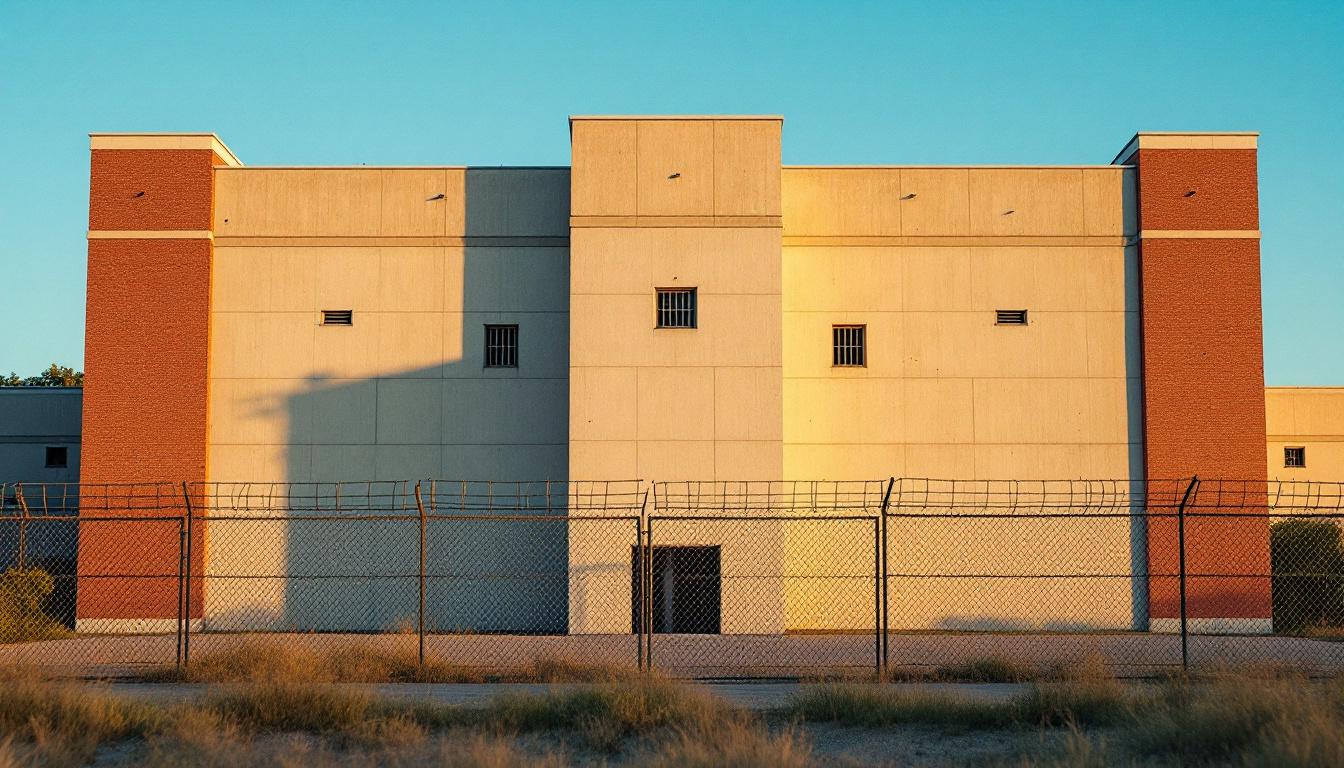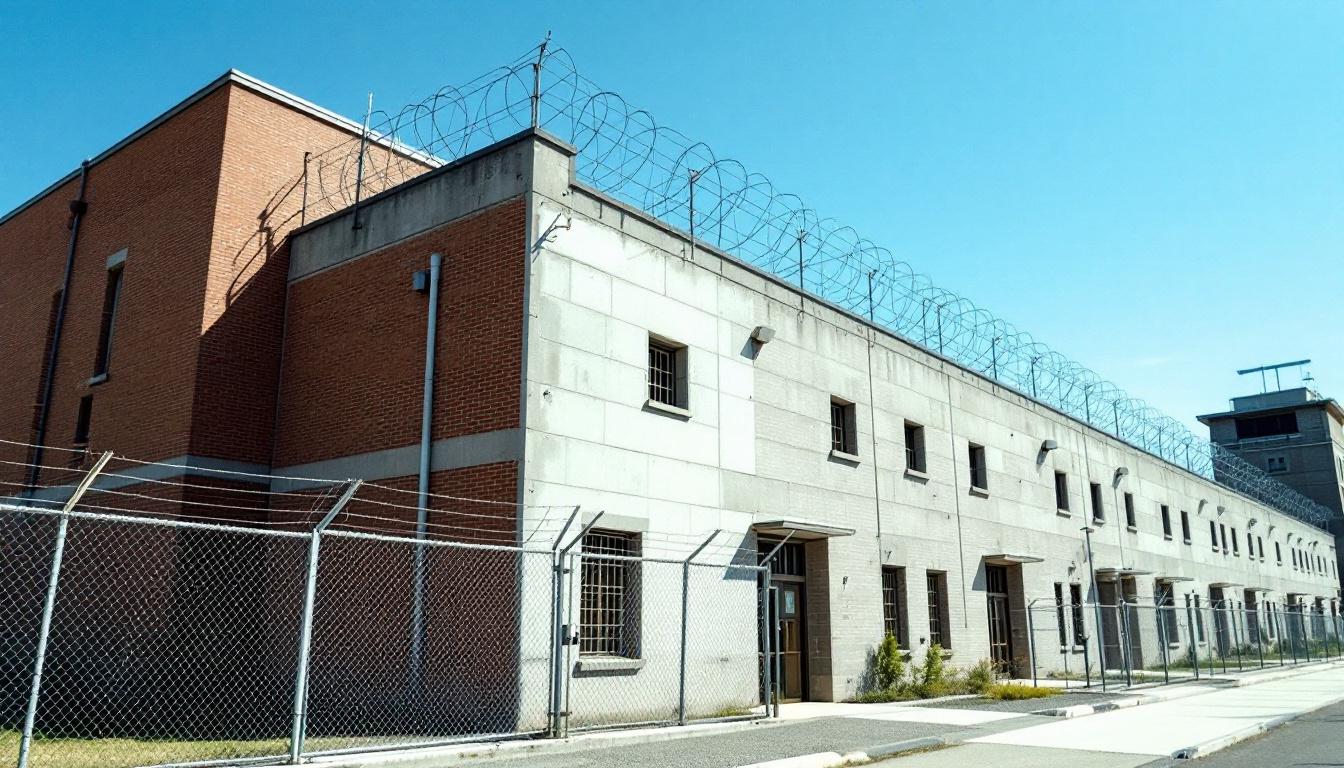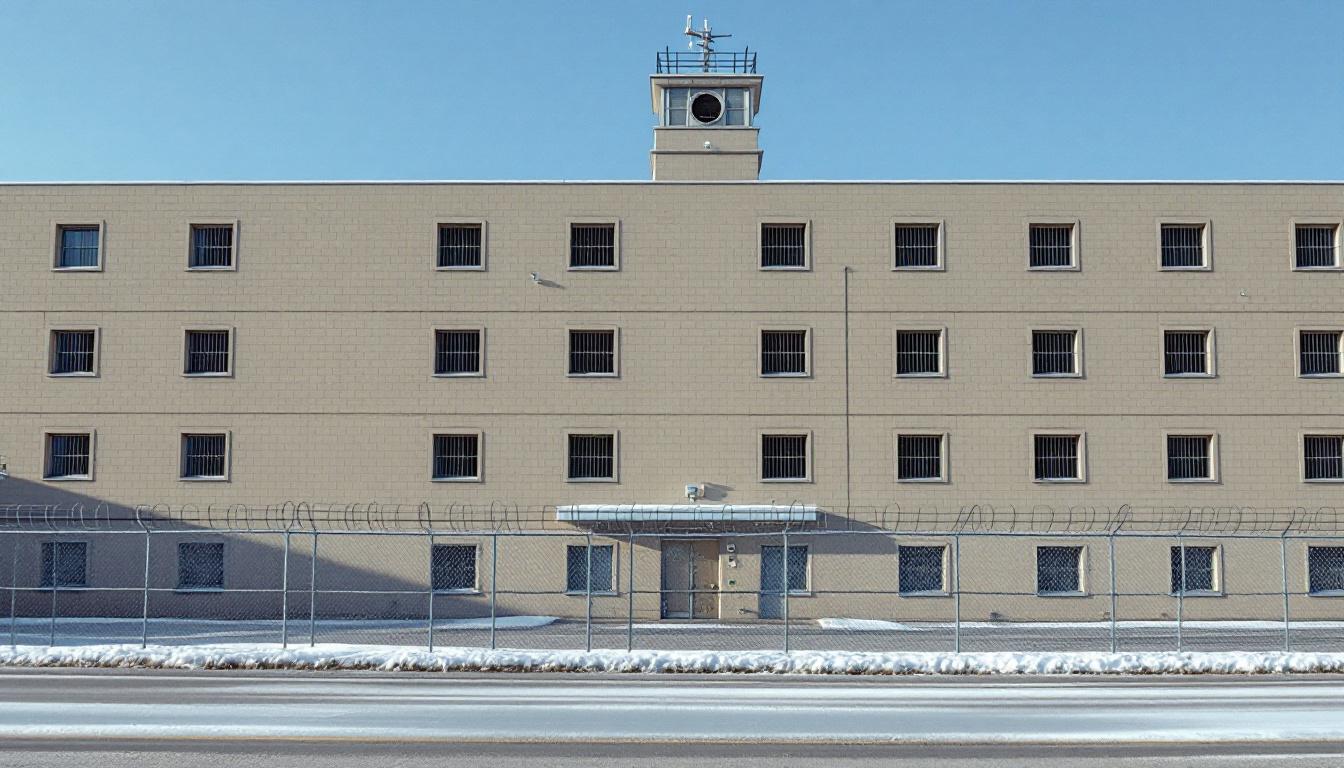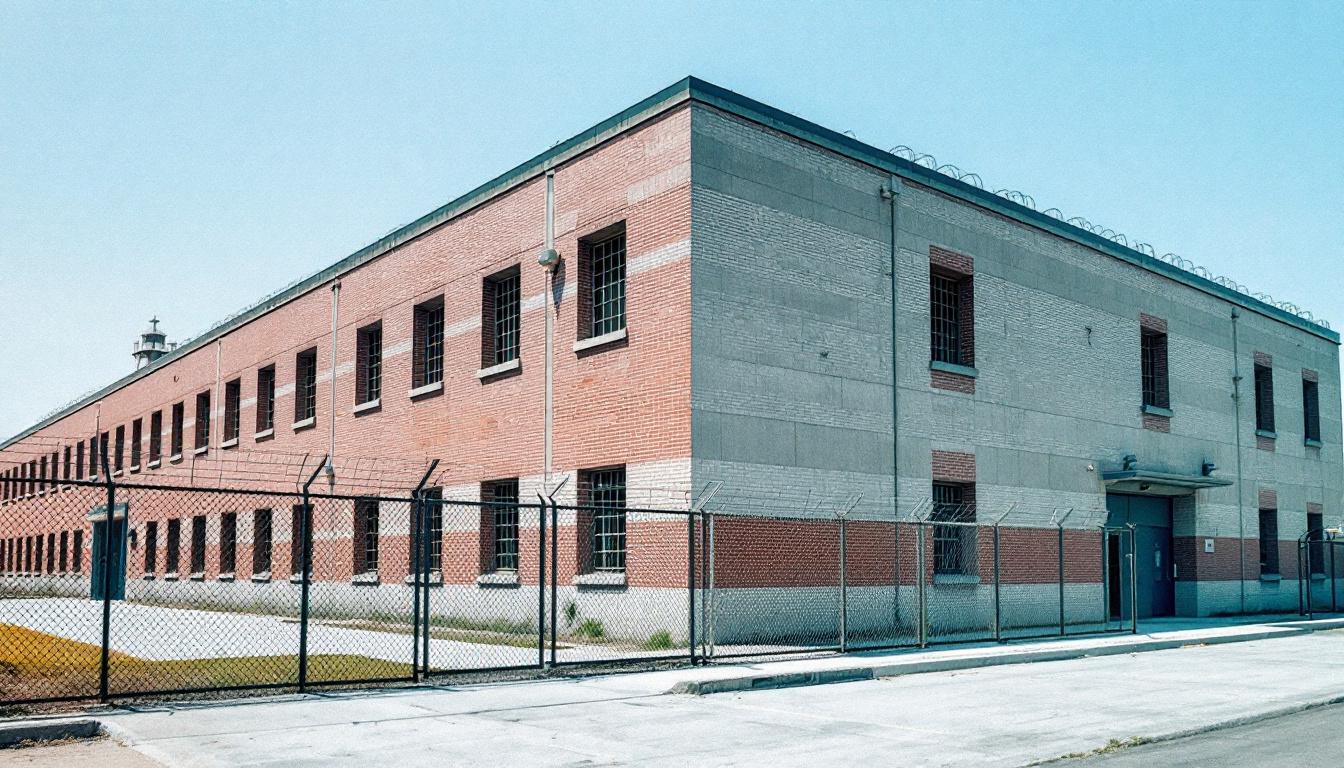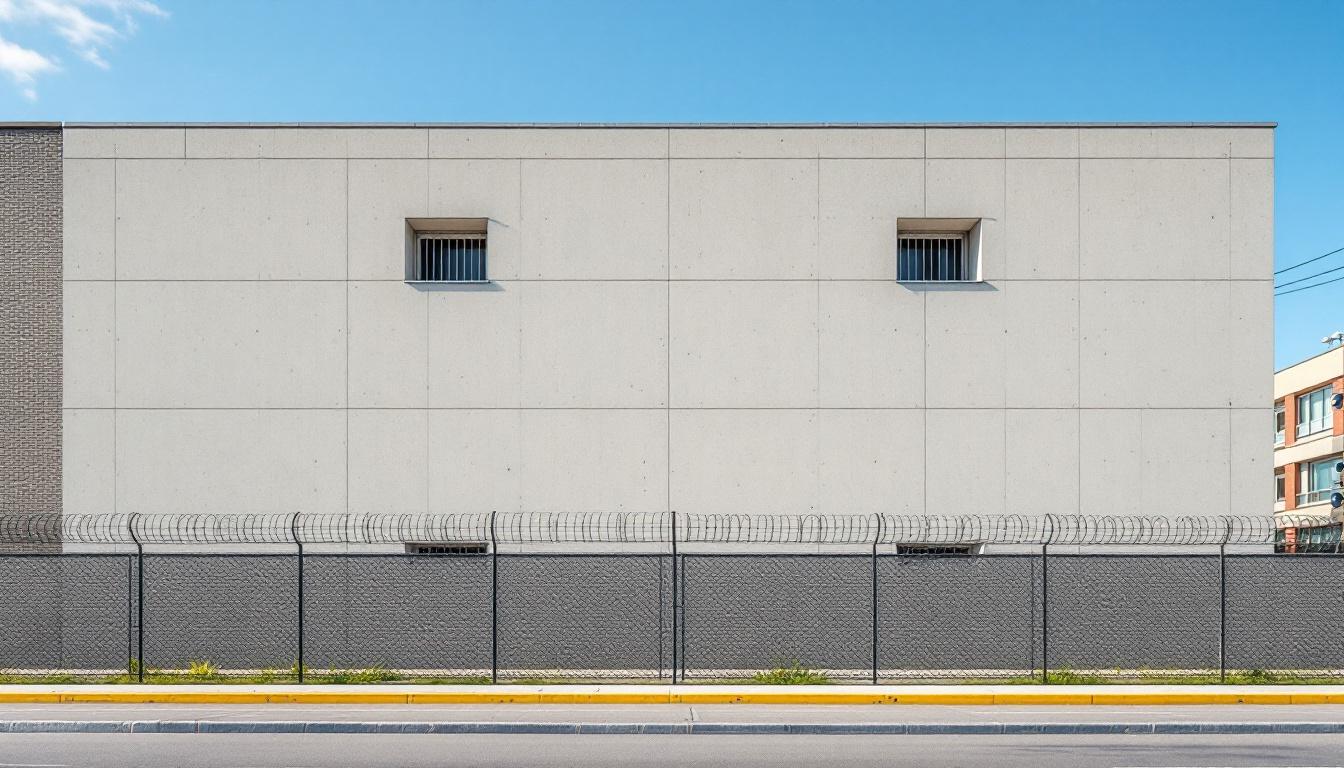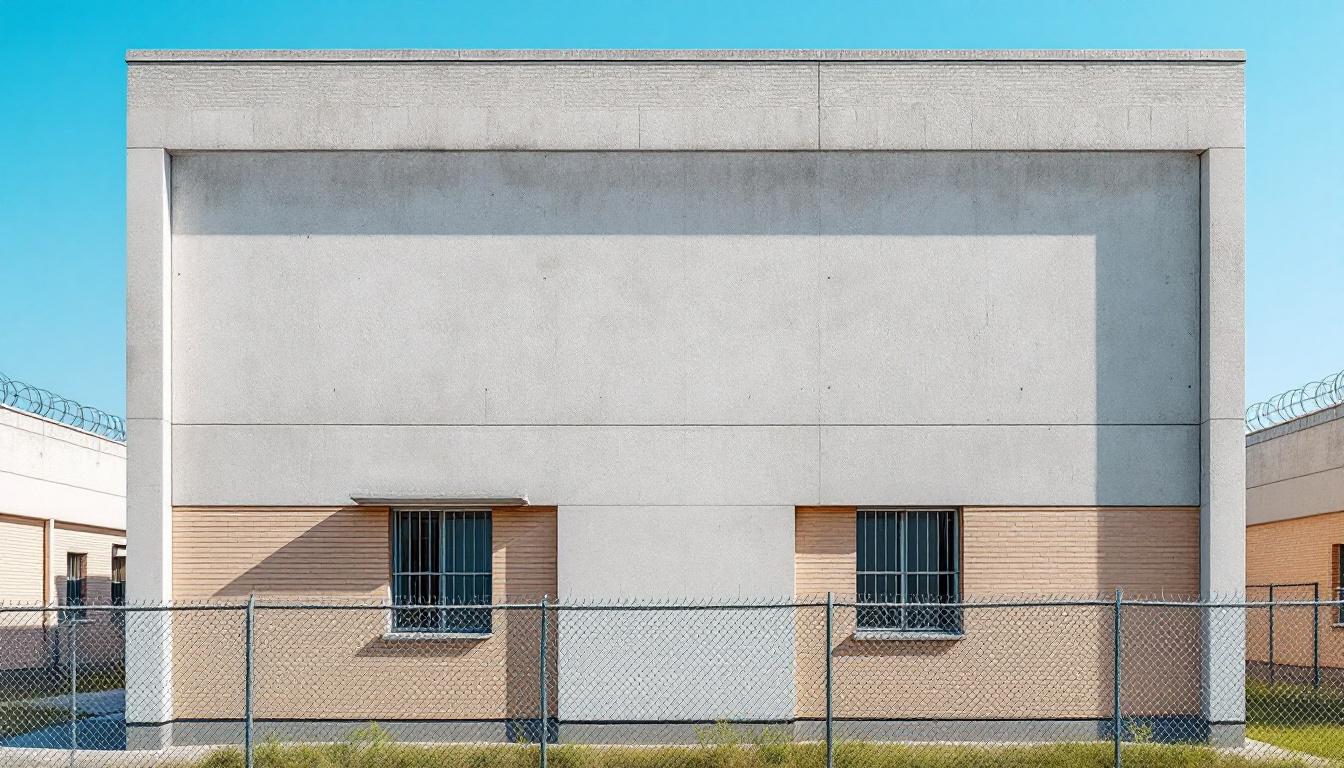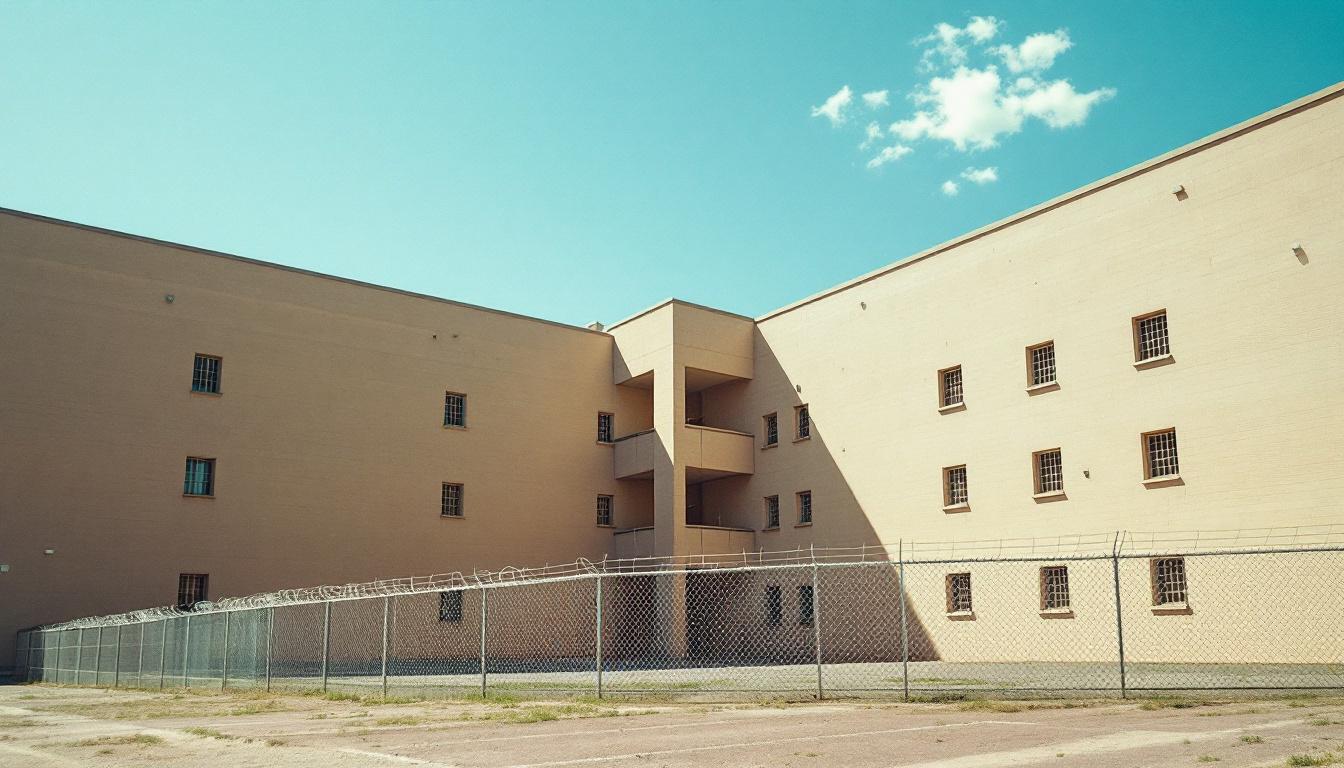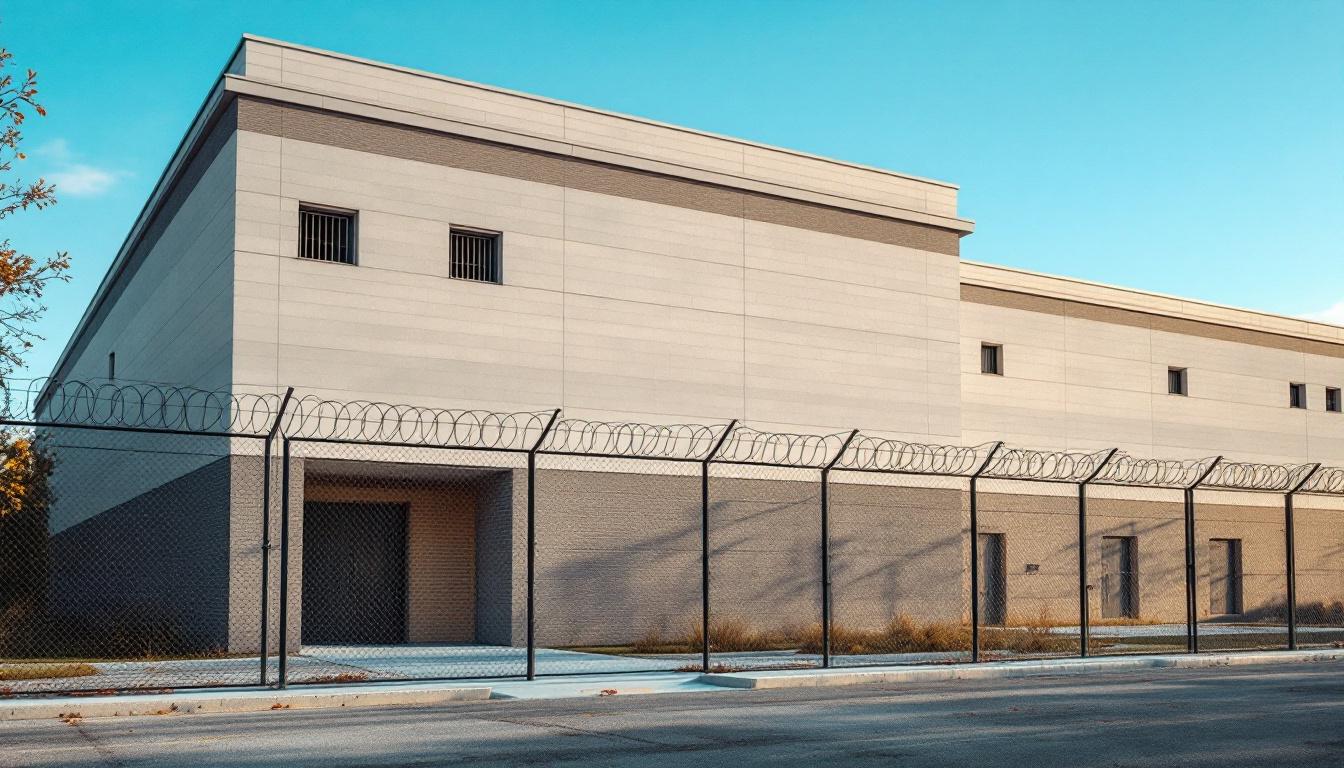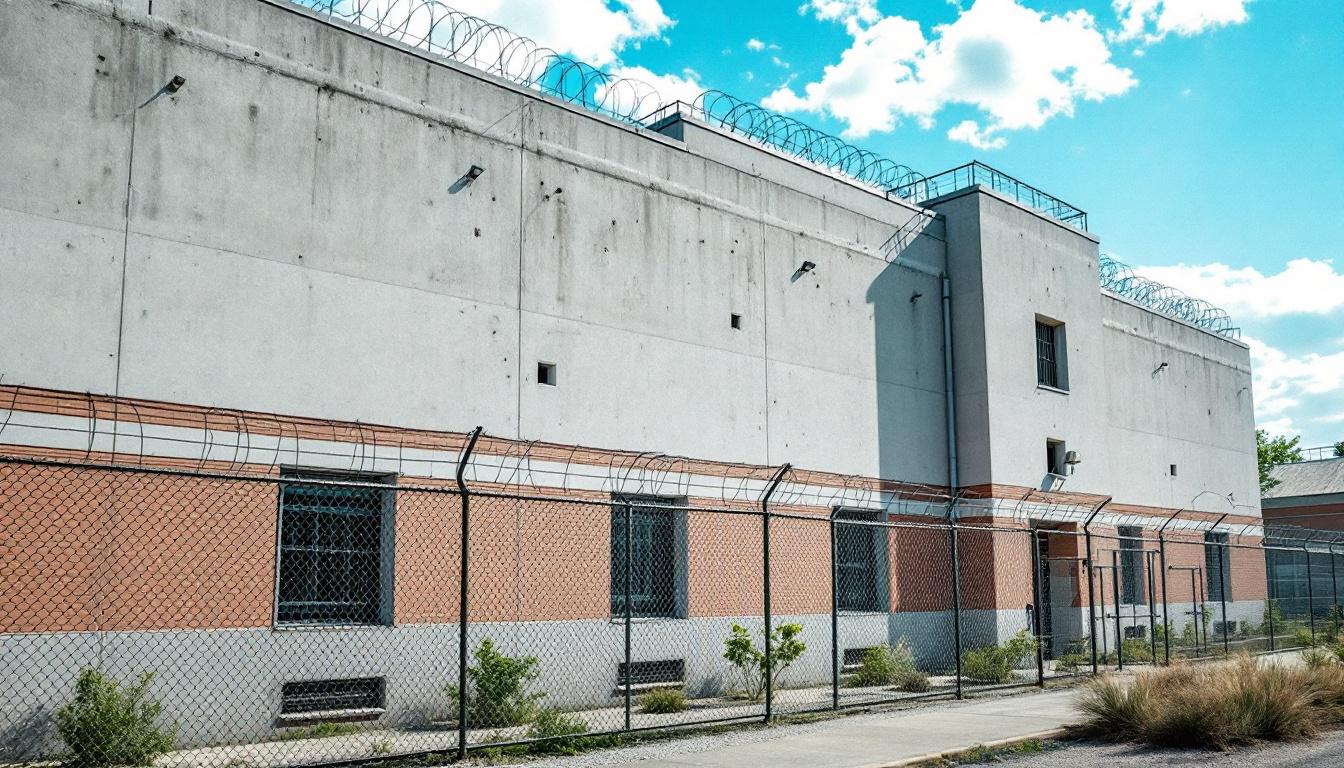
Quick Navigation
How to contact an inmate at Bell County Forestry Camp
This comprehensive guide will walk you through how to connect with an inmate at Bell County Forestry Camp. Follow the steps below to find an inmate and send letters and photos:
- Search for the inmate using our search tool below
- Create your account or log in to Penmate
- Write your message (up to 6,000 characters)
- Send instantly - inmates receive printed copies daily
Find an Inmate
Search for an inmate to start communicating today
Tip: You can search by first name, last name, or inmate ID number
To contact a person at Bell County Forestry Camp start by searching for the person on the official facility website. Perform a search by following these steps:
- Step 1: Enter their first name and last name into the search form and click "Search"
- Step 2: Locate their inmate record
- Step 3: Write down their Inmate ID and any housing information provided
Important! Be sure to enter the person's full name. Nicknames should not be used.
How to Send Messages to Inmates

You can use your phone or computer to send emails, letters, and photos to an inmate. Messages are sent electronically to inmate tablets or kiosks at the facility. If you would like to send a message, start by searching for an inmate at Bell County Forestry Camp.
Sending Photos and Postcards

A great way to send love and support to a loved one at Bell County Forestry Camp is to send photos and postcards. It only takes a few minutes to send photos from your phone and it makes a huge difference. You can also mail postcards with words of support and inspiration, or design your own postcard for special moments like birthdays and holidays.
Important! Be sure not to send any explicit photos or they may not be approved by the facility. You can also use a photo printing app like Penmate to make sure your photos are printed at the correct size (4x6 or 3x5) and are mailed according to the rules and regulations of Bell County Forestry Camp.
Frequently asked questions about Bell County Forestry Camp
-
How long does it take to deliver a message?
If you're sending an email message your letter is usually delivered within 24-48 hours. For messages sent via mail you should expect delivery within 3-7 days. All messages will need be approved by Bell County Forestry Camp.
-
How much does it cost to send a message to Bell County Forestry Camp?
You can send a message free using your phone or mail a message via USPS for the price of a $0.60 stamp and envelope. You can also purchase credits or e-stamps from services starting at $1.99.
-
What services can I use to contact an inmate at Bell County Forestry Camp?
Penmate
You can use Penmate to send letters and photos to an inmate from your phone. It's an easy way to stay in touch during your loved one's incarceration. Use the inmate locator to find an inmate's location and contact information, then you can send messages within a few minutes.
Securus messaging
Securus may be another option for communicating with an inmate at Bell County Forestry Camp. You can create a friends and family account and purchase credits to send messages. All messages will be reviewed and must be approved by the facility.
JPay
Some county jails and state prisons may support sending messages with JPay. You must register an account with the system, find your loved one, and purchase stamps to send messages. For some locations you can also attach photos.
Smart Jail Mail
You may also check if Smart Jail Mail is available at Bell County Forestry Camp. Smart Jail Mail is operated by Smart Communications and has contracted with some state and county jails. After purchasing credits, your messages and photos are sent to the facility, printed out, and then handed out to your loved one.
-
What is the mailing address of Bell County Forestry Camp?
Mailing address:
Bell County Forestry Camp
560 Correctional Dr
Pineville, KY 40977
Phone: (606) 337-7065Business hours:
- Monday: Open 24 hours
- Tuesday: Open 24 hours
- Wednesday: Open 24 hours
- Thursday: Open 24 hours
- Friday: Open 24 hours
- Saturday: Open 24 hours
- Sunday: Open 24 hours
-
What are the visiting hours at Bell County Forestry Camp?
Visiting hours at Bell County Forestry Camp vary by housing unit and security level. Generally, visits are scheduled on weekends and holidays, with some facilities offering weekday visits. Contact the facility directly at (606) 337-7065 or check their website for the current visiting schedule. Visits typically last 30-60 minutes and must be scheduled in advance.
-
What items are prohibited when sending mail to Bell County Forestry Camp?
Prohibited items typically include: cash, personal checks, stamps, stickers, glitter, glue, tape, staples, paperclips, polaroid photos, musical or blank greeting cards, hardcover books, magazines with staples, and any items containing metal or electronics. Only send letters on plain white paper with blue or black ink. Photos must be printed on regular photo paper (no Polaroids). Always check with Bell County Forestry Camp for their specific mail policies.
-
How do I send money to an inmate at Bell County Forestry Camp?
You can send money to an inmate at Bell County Forestry Camp through several methods: 1) Online using JPay, Access Corrections, or the facility's approved vendor, 2) Money orders mailed directly to the facility with the inmate's name and ID number, 3) Kiosks located in the facility lobby, or 4) Over the phone using a credit or debit card. Fees vary by method, typically ranging from $2.95 to $11.95 per transaction.
-
Can I schedule a video visit with an inmate at Bell County Forestry Camp?
Many facilities now offer video visitation as an alternative to in-person visits. At Bell County Forestry Camp, video visits may be available through services like Penmate, Securus Video Connect, GTL, or ICSolutions. Video visits typically cost $10-20 for 20-30 minutes and must be scheduled in advance. You'll need a computer or smartphone with a camera and reliable internet connection. Contact the facility for their specific video visitation policies and approved vendors.
-
What identification do I need to visit an inmate at Bell County Forestry Camp?
All visitors must present valid government-issued photo identification such as a driver's license, state ID, passport, or military ID. Minors must be accompanied by a parent or legal guardian who can provide the minor's birth certificate. Some facilities require visitors to be on the inmate's approved visitation list, which may require a background check. Contact Bell County Forestry Camp for specific ID requirements and visitor approval procedures.
-
How can I find out an inmate's release date?
To find an inmate's release date at Bell County Forestry Camp, you can: 1) Use the online inmate search tool if available, 2) Call the facility's records department, 3) Contact the inmate's case manager or counselor, or 4) Have the inmate provide this information during a call or visit. For privacy reasons, some facilities only release this information to immediate family members.
Facility Overview
Contact Information
Bell County Forestry Camp560 Correctional Dr
Pineville, KY 40977
Phone: (606) 337-7065
Official Website

About Bell County Forestry Camp
Nestled within the Appalachian foothills of Pineville, Kentucky, Bell County Camp operates as a correctional facility serving the broader southeastern region of the state. This facility functions as an integral component within Kentucky’s correctional network, typically housing residents who may benefit from structured programming while maintaining appropriate security measures. The institution’s location in Bell County positions it strategically within the regional corrections framework, often serving communities throughout the surrounding mountain counties while maintaining connections to Kentucky’s broader rehabilitative objectives.
Bell County Camp generally emphasizes a balanced approach between security requirements and rehabilitative programming opportunities. Residents services may include educational initiatives designed to support skill development, along with vocational training programs that often focus on practical competencies relevant to the regional economy. The facility typically maintains structured daily routines that incorporate work assignments, educational activities, and programming elements aimed at supporting successful community reintegration. These KY correctional facility operations often include counseling services, substance abuse programming, and life skills development, though specific offerings may vary based on institutional capacity and resident needs.
The correctional facility’s approach to rehabilitation typically reflects broader state correctional philosophies while adapting to the comprehensive geographic and demographic characteristics of the Pineville area. Programming efforts generally focus on preparing residents for eventual community return through a combination of educational advancement, practical skill development, and behavioral intervention strategies that address underlying factors contributing to criminal behavior.
Programs & Services
Rehabilitation-focused initiatives at Bell County Camp emphasize skill development and personal growth through structured programming designed to address the diverse needs of residents. The facility’s approach typically centers on providing comprehensive support that addresses both immediate challenges and long-term reintegration goals. These initiatives often include multiple pathways for residents to develop essential life skills while addressing underlying issues that may have contributed to their incarceration.
Educational services form a cornerstone of the facility’s programming, with residents having access to basic literacy instruction, GED preparation, and continuing education opportunities. The educational initiatives may deliver structured learning environments where residents can work at their own pace to achieve academic milestones. Vocational programs complement these educational efforts by providing hands-on training in various trade skills and practical job preparation. These programs typically focus on developing marketable skills that residents can utilize upon release, often including instruction in areas such as construction, maintenance, or food service preparation.
In addition to this educational foundation, therapeutic initiatives address substance abuse issues through structured treatment programming designed to help residents understand and overcome addiction challenges. Support services may include volunteer programs that allow residents to contribute to community projects while developing a sense of purpose and civic responsibility. The facility often includes recycling programs as part of its environmental and work-based initiatives, providing residents with opportunities to engage in meaningful activities while learning about environmental stewardship and developing work habits that support successful reintegration.
Daily Life & Visitation
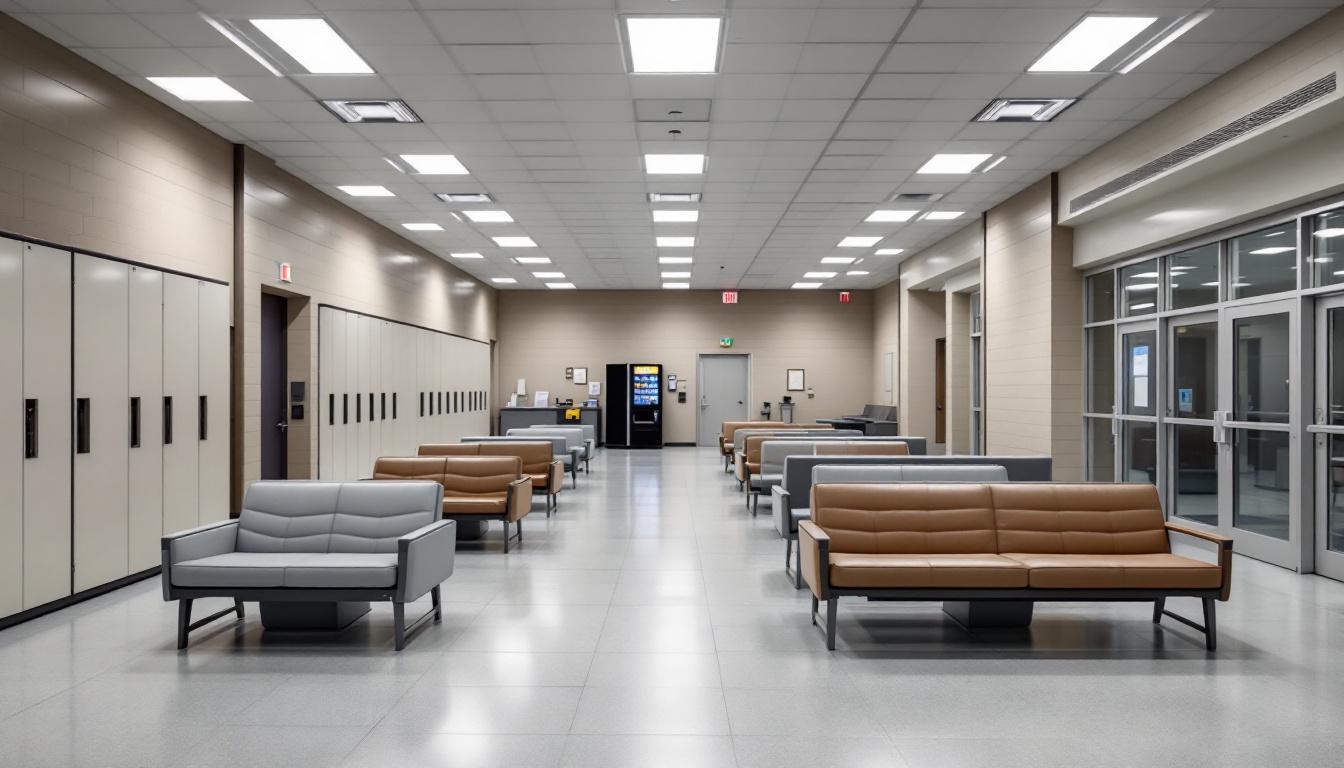
The steady rhythm of scheduled activities now anchors each day, with residents following a consistent routine that typically begins before dawn and continues through evening hours. Wake-up calls generally occur early in the morning, followed by facility counts, meal service, and work assignments that help maintain the facility’s operations. This structured approach regularly provides residents with predictable expectations and clear guidelines for daily participation.
Living accommodations at Bell County Camp typically feature dormitory-style housing units where residents share sleeping quarters with others. Personal property allowances may include basic hygiene items, limited clothing, and approved personal effects that residents can store in designated areas. Meals are generally served in a central dining facility at scheduled times throughout the day, with residents following established procedures for meal service. In addition to this structured environment, recreational opportunities often include outdoor exercise periods, television viewing in common areas, and access to library materials when available.
Work assignments deliver important structure to daily life, with residents typically participating in facility maintenance, kitchen duties, or grounds keeping responsibilities. Programming schedules may include educational opportunities, counseling sessions, or skill-building activities designed to support rehabilitation goals. Despite this controlled environment, residents usually maintain contact with family members through scheduled visitation periods and approved telephone calls. Commissary services generally allow residents to purchase approved items using funds from their accounts, providing some personal choice within the facility’s guidelines. These various elements work together to create a routine that emphasizes accountability while supporting residents’ preparation for eventual reintegration into the community.
Ready to Connect?
Start communicating with your loved one today
Search for an Inmate
